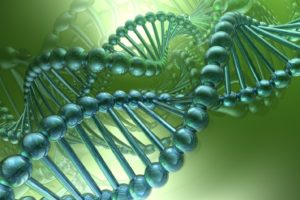 Have you ever known someone who never flosses, eats lots of candy, and yet almost never gets a cavity? Then there are individuals who have excellent oral hygiene habits but still continually need restorative dental care. The reason for such discrepancies may be genetics. In fact, genetics may account for as much as 60% of an individual’s risk for dental problems. As an endodontist in Saratoga explains, there are several ways in which your DNA can determine your susceptibility to tooth decay.
Have you ever known someone who never flosses, eats lots of candy, and yet almost never gets a cavity? Then there are individuals who have excellent oral hygiene habits but still continually need restorative dental care. The reason for such discrepancies may be genetics. In fact, genetics may account for as much as 60% of an individual’s risk for dental problems. As an endodontist in Saratoga explains, there are several ways in which your DNA can determine your susceptibility to tooth decay.
Sweet Preference
Lots of people can’t get enough sugar. Whether they’re sipping on soda, licking an ice cream cone, or chowing down on candy, that behavior might be more than a learned habit. Often, genetics determine how likely people are to love sweets. And, of course, the more attracted you are to sugary goods, the more likely you are to develop tooth decay.
Taste Ability
Some folks are genetically coded to be able to enjoy a broad spectrum of different flavors, while others are naturally “picky eaters.” Scientists have found that people who can enjoy the subtleties of lots of flavors are less likely to experience tooth decay. This may be because they are less likely to eat a lot of sweet goodies, but the exact relationship between taste ability and dental health requires further research.
Tooth Enamel
Tooth enamel is the hardest substance in the human body. Sadly, however, some individuals’ tooth enamel isn’t as hard or as thick as it should be. Their DNA simply didn’t bless them with an adequate protective layer for their teeth. Thus, they are more likely to develop cavities.
Saliva Composition
Your saliva is one of your mouth’s best defenses against tooth decay. It rinses away bacteria and food particles, helping to keep your mouth clean. It also contains minerals that fortify tooth enamel and help it to stand up to the rigors of everyday eating and drinking. Due to genetics, however, some people have saliva that is less effective than it should be at protecting teeth.
Oral Bacteria
Various communities of bacteria live throughout your body, including in your mouth. Some types of bacteria are harmless (or even helpful), while other varieties contribute to tooth decay. Your body’s genetically coded response to bacteria in your mouth plays a role in determining your susceptibility to tooth decay.
Has your DNA made you vulnerable to tooth decay? Avoiding sweets, sticking to a through oral hygiene routine, and regularly visiting your dentist can go a long way toward helping you keep your teeth intact despite your genes. If and when you do develop decay, a filling, crown, or root canal therapy in Saratoga may be just what you need to save your damaged tooth and help you maintain a functional, healthy smile.
About the Author
Dr. An Nguyen is an endodontist in Saratoga who specializes in helping individuals recover from serious dental decay and trauma. If genetics, an accident, or other factors have serious damaged one of your teeth, she may be able to save it via root canal therapy. To learn more about Dr. Nguyen and her services, contact our team today.





